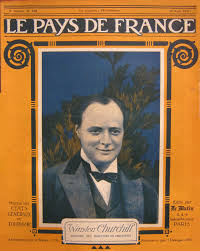Winston Churchill: The Indomitable Leader of Britain

Introduction
Winston Churchill, the British statesman and Prime Minister, is a towering figure in the annals of history, renowned for his leadership during World War II. His determination and oratory skills inspired not only the British people but also the world during some of its darkest hours. Understanding Churchill’s role in shaping modern Britain is crucial as we continue to grapple with the consequences of his policies and ideologies.
Churchill’s Early Life and Political Career
Born on November 30, 1874, into an aristocratic family, Churchill’s early education at Harrow School and later at the Royal Military Academy Sandhurst laid the groundwork for his multifaceted career. He initially served as an officer in the British Army, participating in campaigns in India and Sudan. His political career began in earnest in 1900 with his election as a Member of Parliament for the Conservative Party, but he would later switch to the Liberal Party, advocating for social reform.
The Rise to Prominence
Churchill’s prominence surged during the First World War when he served as First Lord of the Admiralty, overseeing the Royal Navy. However, he faced criticism for the disastrous Gallipoli Campaign, leading to his resignation. Undeterred, he returned to politics in the 1920s and held various positions, including Minister of Munitions and Chancellor of the Exchequer, which established his financial and military acumen.
Leadership During World War II
Churchill’s leadership during World War II was marked by his steadfast refusal to consider defeat. Appointed Prime Minister in May 1940, he rallied Britain with impactful speeches, his most famous being “We shall fight on the beaches”. His coalition government worked resiliently to improve morale and fortify Britain’s defenses against Nazi Germany. His ability to unite the public and inspire resilience was pivotal, transitioning the UK from a state of fear to one of determination.
Legacy and Conclusion
Winston Churchill’s legacy extends beyond his wartime leadership; he was a prolific writer, earning the Nobel Prize in Literature in 1953. His commitment to democracy and free societies continues to resonate today as nations worldwide navigate complex political landscapes. Understanding Churchill’s contributions and complexities is vital for acknowledging the challenges currently faced in global governance and leadership. In retrospect, his impact on British history cannot be overstated, and as we reflect on his life, it serves as a reminder of the resilience required in times of adversity.









